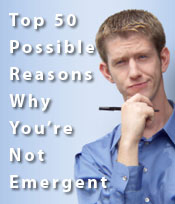
I have a friend who has been deeply hurt by someone important in his life. And knowing what happened to him it is very easy to sympathize with his pain. What she did was very hurtful and his anger was justified in some ways in the beginning. I think anger is a very important and necessary part of the grieving and healing process, for a time being.
But lately we’ve had some conversations about it and he’s still angry. It been several years in fact since the original events happened. And now every encounter with her is colored by the original events. I recently asked him when he would let it go and he said several times, “I just can’t forgive her.”
When someone says, “I can’t forgive that person,” it’s easy to assume that they mean, “I won’t forgive.” And sometimes this is true. But I was thinking about times in my life that I have felt that way. And I now wonder if the statement is more often a truly ironic statement. I wonder if at these moments when I was essentially saying I won’t, I was really meaning I can’t.
Because how often do we really practice forgiveness? Even as a church? When a leader falls aren’t we more likely to crucify him than restore him? When someone “falls” do we really take Jesus at his word when he said, forgive seventy times seven?
Forgiveness is just not a paradigm in which the world (and often the church) lives in. We practice saying, “I’m sorry,” but how often is this for expediency because we need something from the other person or we don’t like people being mad at us. And when the offense is high enough, thus seriously jeopardizing our reputation, it is just as easy to abandon the relationship.
Forgiveness essentially means, “to leave behind.” But to leave offense behind means abandoning the very thing that allows us to be angry in the first place. And the anger just feeds our desire to strike back harder the original offense. And if we’ve never practiced forgiveness, how are we going to be able to do it when it is really required in our lives. So without the understanding of how to forgive, we are essentially locked in a state of oppression…of our own free will.
Forgiveness requires love. It requires stepping into our own humanity and seeing with eyes of compassion. It means letting go of our right to remain wounded for the sake of sympathy. It means stepping into our own maturity as human beings and seeing the person who hurt us as infinitely more valuable than any harm they could do to us.
And it is so easy for us to say, “Come on. Isn’t that a little hyperbole? Isn’t that stretching it a little too far? But this is exactly what Jesus did on the cross. He took the posture that no matter what we could do to him, we were still worth it.
I use to always get bent out of shape when I would read the way Jesus approached forgiveness. He said things like:
14For if you forgive men when they sin against you, your heavenly Father will also forgive you. 15But if you do not forgive men their sins, your Father will not forgive your sins. (Matthew 6:14-15)
That’s just harsh. But what if Jesus understood that if we can’t forgive others we’re creating a standard that we will then use on ourselves. Or that the standard we are using on others is indicative of the standard we are already using on ourselves. Doesn’t forgiveness then essentially mean to release the very thing that is killing us?
And so when someone says, “I can’t, is it more restorative to approach them with an understanding that they are truly stuck, that the statement is indicative of something deeply troubling in their life?
Interested in your thoughts.























